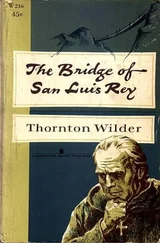On Christmas morning, Jo sent her mother and grandmother messages, but didn’t return their calls. The connection between them and Ashleigh, the girl rushing off early to set the tables and help with the carving of the roasts, was tenuous; she couldn’t think what she might say to them.
Once her shift started, there was no time to think. The customers were large extended-family groups, mainly from the caravan park. There were balloons and tinsel, and the music — Christmas-themed — was loud and eclectic, including old Bing Crosby classics and songs by Billy Bragg and Coldplay. There were kids running around, and most of the adults were drunk before the entree was served. By the time they had cleaned up after lunch, they had to set up the dinner buffet. When the staff gathered for a quick meal at four-thirty, she sat quietly at the end of the table while the others told anecdotes about the silly, rude, ridiculous things some of their customers had said and done. It was then that she thought about Ash, and Ash’s family. Last year, she’d gone to Ash’s for pudding after Christmas lunch at Mary’s house with her mother and an elderly couple who were long time neighbours of Mary’s. She could hear Ash’s family, their laughter, their animated conversations, from the end of the street. There was a cricket game in the driveway and people spread through the house and the backyard. Ash’s father was playing the Eagles and singing along. And Ash and Jane were teasing him.
‘Great, Jo’s here,’ Ash said when Jo walked in the door. And there was a boisterous Merry Christmas, Jo from Ash’s family.
She felt a wave of sadness and grief. There would probably be no Christmas lunch at Ash’s house this year. No laughter or singing. No Ash. She could feel herself sinking.
Jo was relieved when Justin shouted across the table, ‘Sorry to break this up, but we need to get back to work, guys.’ He pointed outside and they could see that the first of the dinner bookings were lining up outside the door.
It was well after midnight by the time she got to bed, grateful to be too exhausted to think.
The week between Christmas and New Year, the stream of holiday-makers arriving in town increased severalfold; cars toeing jetskis, caravans, or boats, or overloaded with bikes, toys, and children, clogged the main street. Every night the restaurant was full, and on New Year’s Eve they were booked out again. By the time they finished cleaning up and Justin suggested champagne, it was 3.00 am and she was not the only one too tired to hang around. She walked home past houses where the parties were still going, music blaring, voices streaming out of open front doors, partygoers too drunk or too tired to stand sprawled on front lawns. ‘Happy New Year,’ they yelled out to her, holding up their glasses and bottles.
It was a new year. 2010. Twelve months ago she’d spent the night with Ash, Laura, and Mani. They’d made New Year’s resolutions standing on the balcony of Laura’s house, silly, ordinary resolutions — to study hard, to exercise, to lose weight — and danced until early morning. They’d been excited, and anxious too, as they looked forward to their last year of high school. One last hurdle. Around the corner, freedom and the beginning of their ‘real’ lives.
Jo crawled into her bunk in the dorm. 2009 had turned out to be Ash’s last year. Everything had gone to shit. She curled up, knees to chin. She would not make any resolutions; there was no point.
Happy New Year.
Last year, she and Ash had seen the year out together, had woken up next to each other the following morning. By the time they’d had breakfast, it was mid-afternoon. The whole twelve months stretched out ahead of them.
On your own in 2010.
I miss you, Ash.
I’ll always be missing.
No matter how bad 2010 turned out to be, 2009 would always be her worst year ever.
Before New Year’s Eve, Jo had kept her distance from the other staff, making excuses not to join them for after-work drinks or excursions to Geelong on nights off to see a movie or go to a club. Partly it was to avoid the inevitable questions, partly to avoid the alcohol. She hadn’t had a drink since the accident. Some nights the smell — of the beer especially — or the sight of a group of drunk young women made her nauseous. But in the first weeks of 2010, The George continued to be busy and, exhausted at the end of her shifts, Jo could not face going back to the dorm alone, to Ash’s taunting voice, to the relentless memories of her life before the accident. So she gathered with the others in the courtyard after they closed. She drank Coke or lemonade and didn’t say much. She let the talkers talk, she laughed at their jokes and deflected the occasional questions, but otherwise she was invisible, the quiet child in a big, boisterous family.
So she was surprised when one night Margaret, the other regular waitress, whispered in her ear, ‘Justin has the hots for you.’
After that night, Jo became wary around Justin, more conscious of the way he sought her out, and of the way she anticipated her time with him. When she was with Justin, she forgot about Ash, about the accident, about the future. When she was with him, she was calmer. But if Justin did like her, who exactly did he like? A girl called Ashleigh he knew nothing about?
She didn’t want to start a relationship with him, with anyone. She tried to avoid him after that. Took her breaks when he was out or busy. Found a new grassy spot to sit, away from the restaurant, so he wouldn’t find her. But in the quiet times — at night in bed, on her long walks — she thought about him, she daydreamed a romance she knew was impossible, could only happen in a parallel universe where Ash was alive.
Justin wasn’t at all like the boys she went to school with. Or like Ian, or Craig, the first guy she’d slept with, what seemed like centuries ago but was less than twelve months. Justin worked, he fished, he spent time doing odd jobs for his father, volunteering with the SES. He wasn’t ambitious; he had no plans to study or travel. It was this quiet contentedness, plus his kindness and care, that drew her to him. This idea that life could be lived day by day, in a series of small movements, without climax or crescendo, without taking things too seriously.
One afternoon, Justin called the staff together between the lunch and dinner shift to discuss changes to the menu. Afterwards, they all sat at an outdoor table having a drink. The conversation turned to fishing, and one of the other waiters asked Jo if she liked it. ‘I’ve only been fishing once,’ she said. ‘Down there, actually.’ She pointed to the pier. ‘I was little, and I came here with my grandfather. I think to give my mother a break. We spent most of the week on the pier fishing.’
‘Did you catch anything?’
‘I can’t remember. I think a catfish, or something that we had to throw back. I remember it was fun, but maybe it was hanging out with my grandfather.’
‘It was the fishing too,’ Justin said, and the others laughed.
‘According to Justin,’ Margaret said, ‘fishing is the cure for everything. He’s worse than those religious fanatics. Come to Jesus, no, come to fishing.’ Margaret was in her late twenties with two children, a ten-year-old and an eight-year-old. According to the others, her partner was a ‘wanker who doesn’t deserve her’. She was tall and skinny, with short blonde hair, and from a distance she could be mistaken for an adolescent boy. People gravitated to her, and she was often at the centre of their after-work gatherings.
Justin hit Margaret playfully on the shoulder and she called out, ‘Harassment, did you guys see that? The boss is hitting me!’
‘You wish,’ Rob, the chef, said, laughing.
Читать дальше












